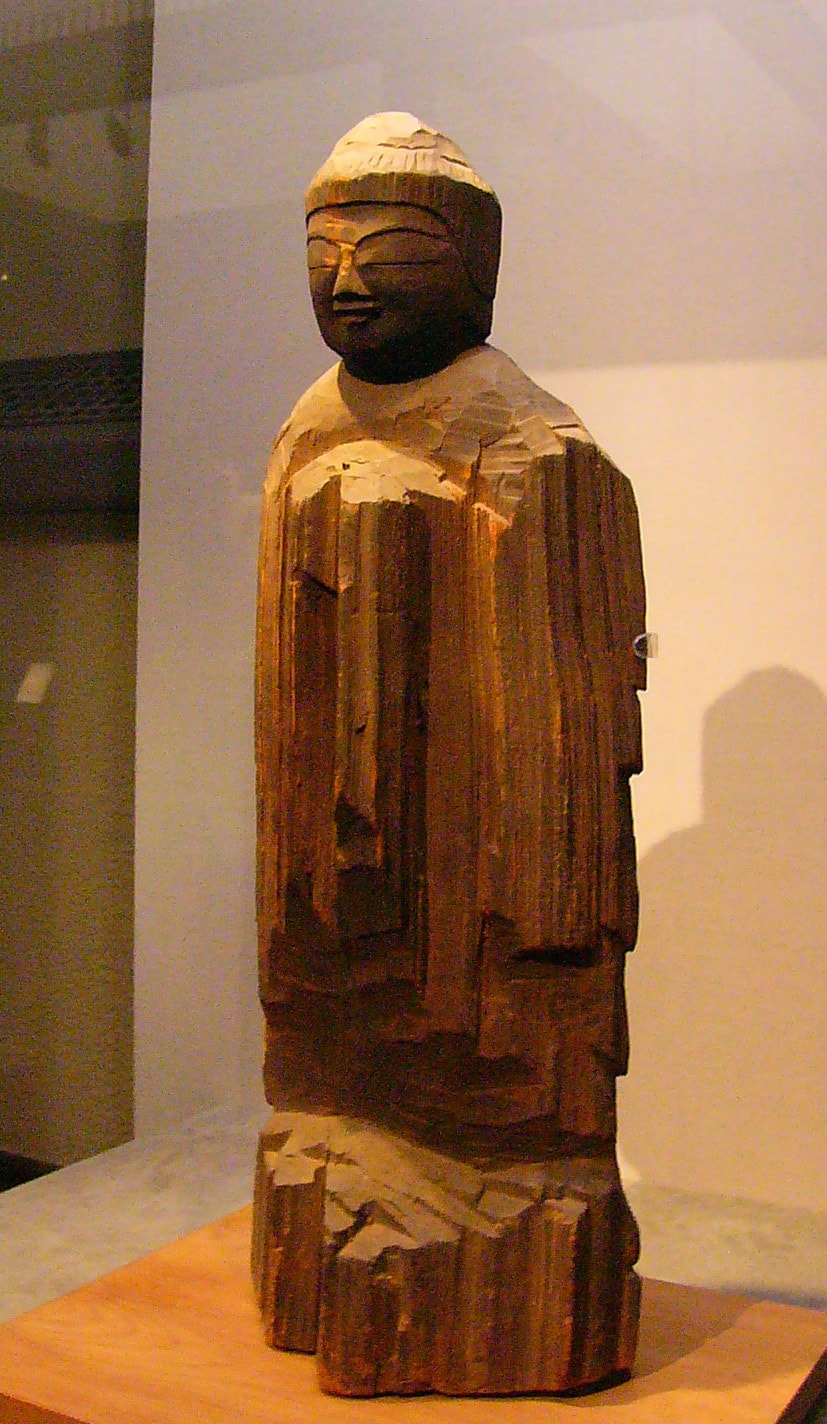The hidden gem among the BrahmaviharasImage courtesy of ReijiYamashina, CC BY-SA 3.0 <https://creativecommons.org/licenses/by-sa/3.0>, via Wikimedia Commons.
An interesting occurrence
A friend of mine once told me about a meditation experience he'd had one evening. He sat down to do his usual practice, and then a spontaneous memory came to mind of his two daughters playing together. Like any sisters, their relationship is turbulent at times, but they get on pretty well, and sometimes they'll get into a groove and have a really good time together. Remembering one such occasion that had happened recently, my friend found that the memory brought up a very sweet, enjoyable feeling - a kind of combination of relaxation, enjoyment and peace of mind. And as he stayed with that feeling, it gradually built up, taking him into an experience of great joy and tranquillity. The emotion my friend was tapping into is called mudita in Pali - it's a word that doesn't translate directly into English, but something like 'appreciative joy' captures it pretty well. It's the feeling we get when something good happens, either for ourselves or someone else, and we take a moment to appreciate the good thing that's happened - to celebrate a moment of good fortune. If you've ever seen something and thought 'Ahh, that's nice', that's mudita. Mudita is one of the Brahmaviharas - the heart-opening practices found in early Buddhism. Of the four, mudita is probably the least well known, which is a bit of a shame - it's a really nice quality, and it's a powerful antidote to the rather cynical modern culture in the West, which would typically rather cut down people who are doing well than celebrate their good fortune. For many people, mudita is an easier 'way in' to the Brahmaviharas than any of the others. Loving kindness is the most popular, but it can seem fake, cheesy or a bit wet to some people. Compassion, on the other hand, may have the issue that it invites us to recognise the suffering all around us - that isn't always the most appealing thing to do! And equanimity is a bit of an odd one - we typically associate the idea of an open heart with feeling good, whereas equanimity has a neutral sound to it. But we all feel happy when something good happens to us, and so we have the raw material of mudita readily available, if only we know what we're looking for. My friend's experience also illustrates one of the less well-known aspects of the Brahmaviharas - if one of the four emotions can be generated, stabilised and focused on, it can lead us into jhana, the deep concentration states taught by the Buddha throughout the early discourses. Mudita is a particularly good way in to jhana, because the jhanas are essentially states of enhanced well-being - so if we start out with a practice that makes us feel good, we're halfway there already. This can be a much easier road into jhana than trying to find our way there with a more neutral object like the breath. Appreciative joy in Zen The Brahmaviharas are typically not taught directly in the Zen tradition (my Zen sangha, Zenways, being a notable exception). However, I would argue that the quality of appreciating what's present finds other expressions in east Asian culture, including Zen. The image at the top of this article is one of the sculptures of the wandering mountain ascetic Enku. After being orphaned when his mother was washed away in a flood when Enku was just seven years old, he took up spiritual practice, becoming a yamabushi, a term which literally means a 'mountain warrior'. Enku's practice blended Buddhism (of the Tendai school, rather than Zen), Daoism and Shinto. Amongst other things, Enku made a vow to carve 120,000 Buddha statues in his lifetime, and was thus almost always at work, giving freshly carved Buddhas to whoever he met. Many of his carvings survive to the present day, including the one pictured above. They can often be identified by their beautiful smile. Enku was also a poet - the poem at the beginning of the article is one of his. My Zen teacher has translated a collection of Enku's poems (which you can find here if you're interested). One might imagine that a spiritual practitioner's poems would all be concerned with lofty matters of enlightenment and meditation, but actually we find a wide (and very human) range of emotions on display. It's hard not to read a sense of longing into one of the poems written later in Enku's life: With time Maybe I could still mount the path And master Fukube Mountain Once again. And there's a definite chill in the air reading these words: Monk's Robe Mountain peak Dividing The stormy clouds; I think on Your coldness. Brr. But in a great many of Enku's works, his love and appreciation for the natural world shines through. As I heard Kurai Mountain's Greenfresh sacred sakaki trees Wherever you look- Beautiful as flowers. Or this: Monk's Robe Mountain Covered with mist. Spring is far But the wind carries the fragrance Of flowers. Sometimes, we may choose to practise and cultivate a quality like mudita explicitly. At other times, our practice may be more open and unstructured - and yet, as the heart opens naturally, the same qualities shine through, expressing themselves through our thoughts, words and deeds. I'll give the last word to Enku. Made for posterity, This Benzaiten goddess. Over long years and countless generations, Please celebrate happiness, Protect the people.
0 Comments
Your comment will be posted after it is approved.
Leave a Reply. |
SEARCHAuthorMatt teaches early Buddhist and Zen meditation practices for the benefit of all. May you be happy! Archives
June 2024
Categories |

 RSS Feed
RSS Feed